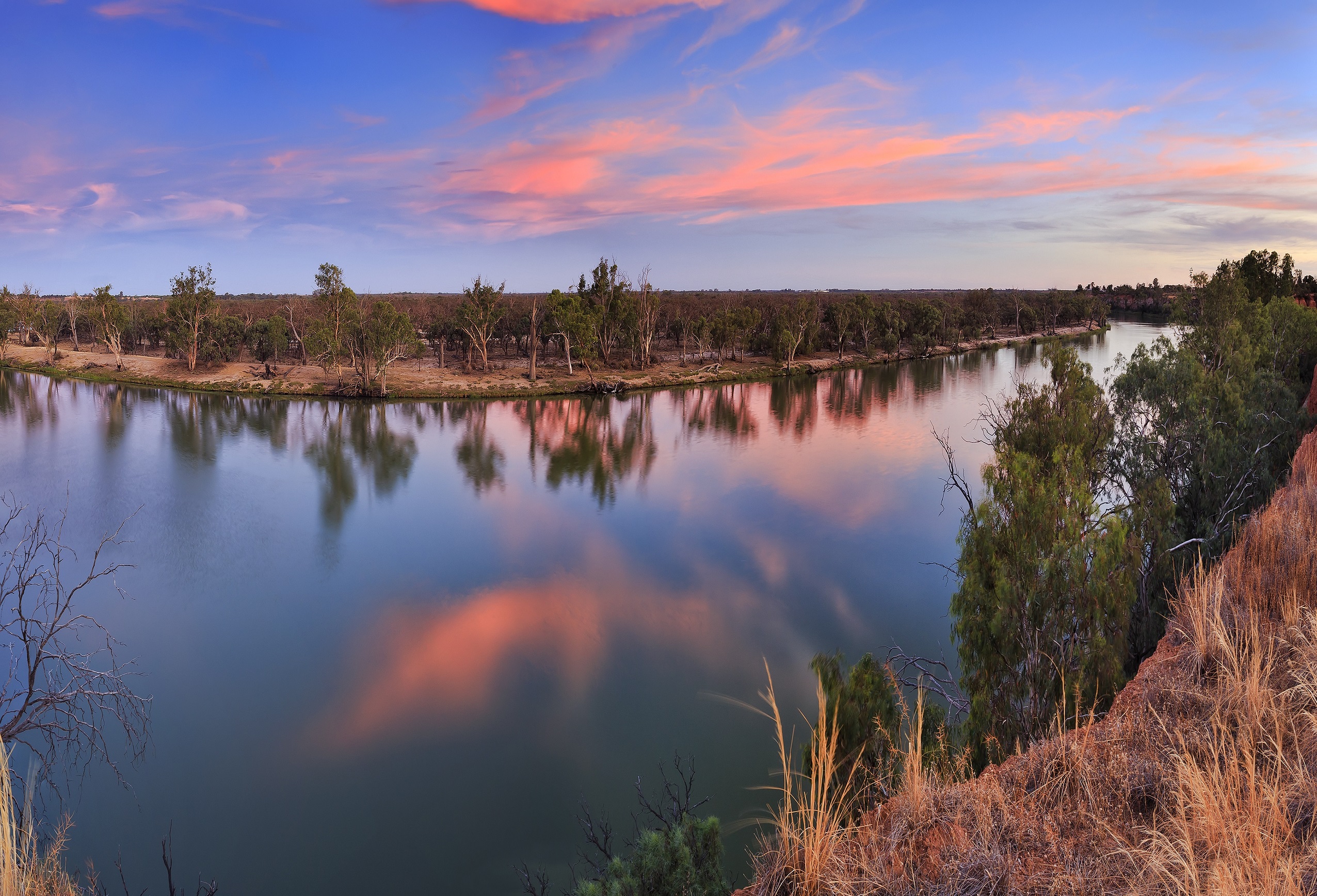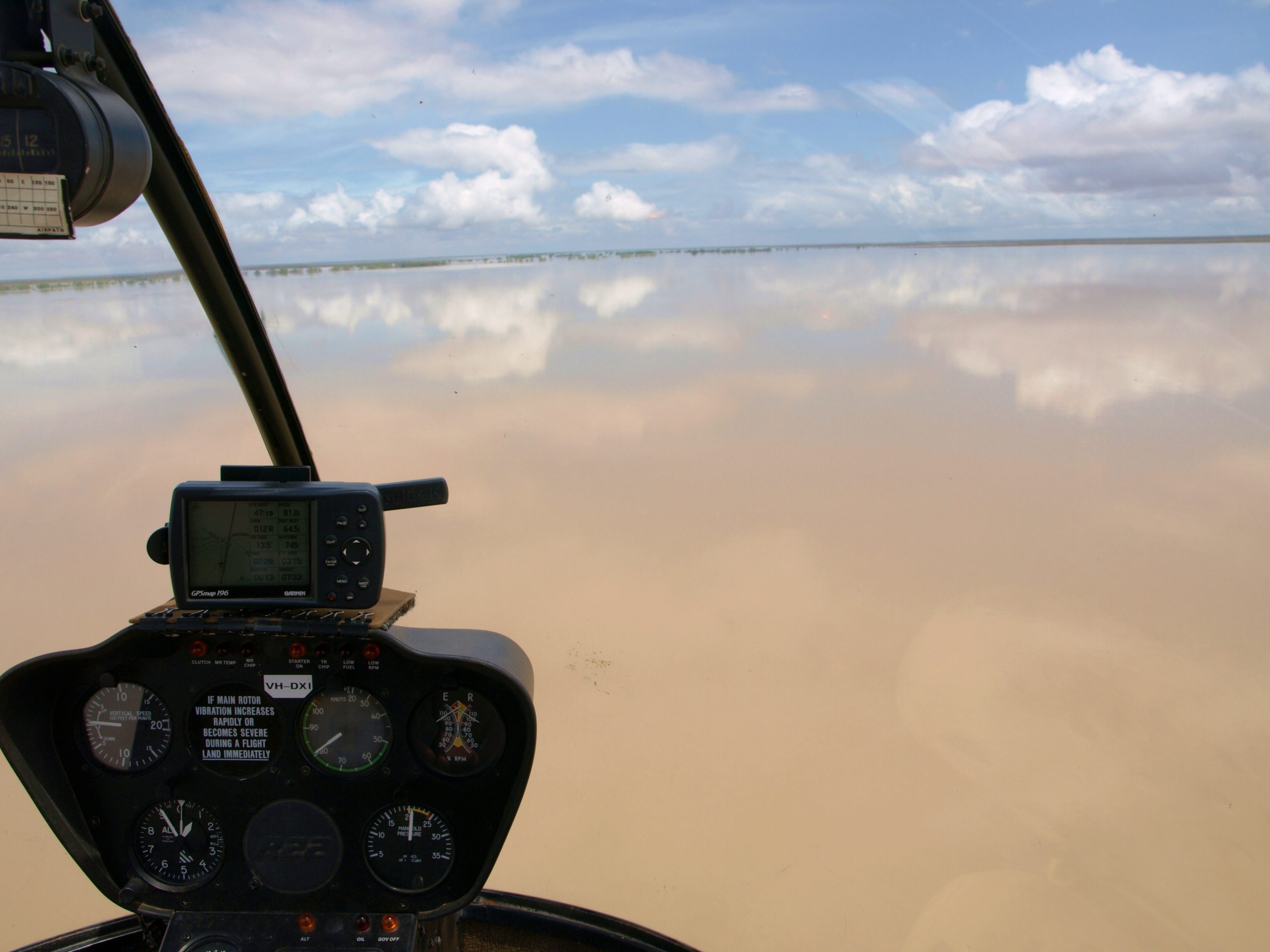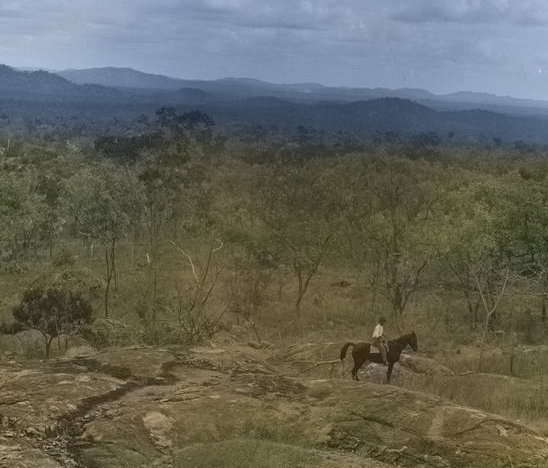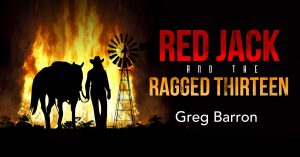
When Tommy the Rag and Carmody rode up, accompanied by a cloud of their own dust, Sandy swore so hard he had to stop and spit. ‘You bastards are s’posed to be watching the old claim. What the bloody hell are you doing here?’
Carmody swung off his horse. ‘Well that was a fair cow of an idea. If you think we’re going to wait on a heartless piece of rock at Rosie’s Flat while you mob fill your pockets with gold, you’ll have to think again.’
‘Everything we find is shared between all of us,’ Sandy explained.
‘Oh really?’ said Carmody. ‘I’ve had a wide experience of sharing, over the years. It usually means that someone else gets everything, an’ I get fuck all.’
‘You still shouldn’t have ridden off,’ spluttered Sandy. ‘We agreed—’
‘No,’ said Carmody. ‘You agreed, and the rest of us had to go along with it. Anyhow, why can’t we just take it in turns to ride in and throw some dirt around for half a day? That’ll keep us in proper legal ownership.’
Sandy scratched his beard, ‘Well I suppose you’ve got a point. We’ll have a chat about it later. In the meantime you’d best get yerselves a feed.’
‘Bugger food,’ said Tommy. He pointed to his eyes. ‘I’m gonna speck me up some of that gold before I do anything else.’
The new claim was different to what the gang were used to. Within a few days they had panned or dry-blown alluvial gold in the gullies, and found more-gold streaked stones on the ridge. Nellie’s Reef had been exposed, reckoned Bob Anderson, by the parent rock weathering away, leaving the gold there for the taking.
After months of living close together, working as a unit on the same shaft, here the gang all had different theories about how to approach the dig. Without Tom to hold them together, they split off into twos and threes.
Wonoka Jack and Wonoka George choose a spot half way down the hill and began a deep scrape along the line of the gold they’d found to that point. Bob Anderson camped at the top and tried to enthuse the others about chopping trees for shoring and beginning a deep shaft.
‘If t’were one line a’gold here, there cuid be more, ‘neath the ground, like.’
‘Never again will I squirm like a worm underground,’ swore Jack Dalley. ‘Not when there’s gold to be plucked from near the surface. If there’s to be a shaft you can dig the bastard yourself.’
Still, they were all happy enough, and the gold came in, ounce by ounce, first on the surface then scraping the upper layers with picks and shovels. The result did not amount to a fortune, but it was better than the disappointment they had left behind. The gang decided to take it in turns, as Carmody had suggested, to ride in and work the old claim, but after a few days, no one bothered. It was a long ride, just to work in the sun. The chances of finding a big nugget were more promising here, and everyone talked about the prospect.
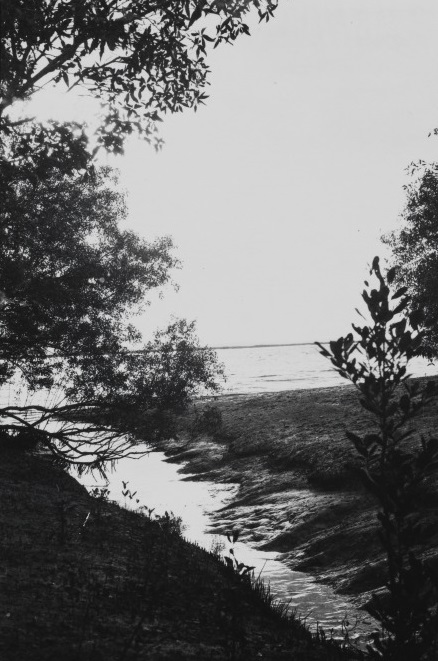
Word came back to the Wyndham police, from Alexandria Station, that of course there had been the gift of a grey horse, and yes he had impeccable breeding. The manager and head stockman there were old mates of Tom and Larrikin, and owed Tom a good turn or two.
‘Tom Nugent. We’re releasing you for lack of evidence,’ the police constable said, jangling the keys. ‘But every man from here to Camooweal, and south to bloody Burra knows that you’re a lying dog and you should be in gaol for life if not hanged.’
‘Fetch my things for me,’ said Tom, ignoring the tirade. ‘There’s a good chap. I hope you’ve looked after my horse for me.’
Yet Tom had no intention of riding straight back to Hall’s Creek. Instead he rode down to the landing and sold the grey to a new chum for twenty guineas, with a lesser horse thrown in – a bay gelding with clean legs and a deep chest. The grey was worth many times that, of course, but now, with Tom’s proof of ownership all over town, was the time to sell.
With money to spend, Tom visited Black Pat Durack’s store, where he purchased a new pair of moleskin trousers, heeled riding boots and a couple of striped Crimean shirts. Thus prepared, he booked into the Cable family’s pub, paying up front for a hot bath.
Tom spent an hour in the tub, soaking and scrubbing himself. When he was done there was almost as much dark-brown water on the floor as there was in the tub.
He dried himself, shaved, and walked back to his room with the towel wrapped around his middle. He dressed in new clothes and smoked a pipe before walking to the post office, where he asked at the counter for the address of Miss Byrne, the schoolteacher.
‘Why she lives in the boarding house over yonder,’ said the postmaster. ‘But if you’ve taken a shine to her, let me just mention that you ain’t the first … and no one has succeeded yet.’
When Tom knocked on the boarding house door, it was four in the afternoon according to his pocket watch, the perfect time to catch her, being at the end of the school day. An older woman answered the door, and when Tom asked for Miss Byrne she disappeared without a word. He waited a minute or two before the young schoolteacher appeared in the doorway. She was no longer wearing the bustled gown she wore to work, but a simple dress that had seen better days, and a practical outdoor hat.
She seemed younger than he had imagined, up close. Her skin was lightly freckled, with mocking eyes and happy lips. Her hair was blonde and tied back in a sensible pony-tail.
‘Hello Miss,’ he said, holding his hat in his hand. ‘I’m—’
‘I know who you are, well enough,’ said Miss Byrne. ‘I got your note. Besides, everyone’s talking about Tom Nugent, captain of the Ragged Thirteen and famous horse-thief.’
‘Are they really?’
‘It’s all I’ve heard about. Even the school children know who you are.’
Tom wasn’t sure what to say next. She saved him the trouble.
‘What are you like with a pair of oars?’ she asked.
Tom started with surprise. ‘Well, not bad I guess. I’ve rowed a bit, here and there in me time. Why’s that?’
‘I’m just heading off to check my pots. You can help.’
‘Your what?’
‘My crab pots. The tide’s just right about now. I can row myself, but crabbing’s lighter work with two.’
Tom tipped his hat. ‘I’d be honoured to help you out, Miss Byrne.’
‘Oh, bugger calling me that all the time. I get it all day and it becomes tiresome. My name’s Emily. Just wait a moment, I’ve got a bucket of bait.’ She reappeared a moment later with an evil-smelling pail. ‘Here, you can carry it, if you like.’
‘Don’t mind if I do,’ said Tom.
Emily Byrne, it turned out, kept a dinghy down by the landing – a sturdy, clinker-built unit of about ten foot in length, flat-bottomed so she drew ‘barely as much water as a duck.’
The tide was in over the flats, and Tom slipped the oars into the rowlocks, watching wide-eyed as Emily lifted her dress to her waist, and tucked it into her bloomers. ‘Don’t look,’ she said, seeing the direction of his eyes. ‘They’re only legs, and I can’t have my dress sitting in bilge water the whole time.’
Emily pointed out the direction of travel, upstream along the mangrove-lined banks of the inlet. Tom bent to his task, making a show of keeping straight and pulling powerfully into the tide.
‘You’re a fine rower, Mr Nugent.’
‘Thanks, but if I have to call you Emily, you’d better address me as Tom.’
They continued up the channel, and Tom was enjoying the burn of his chest, arm and shoulder muscles. Ahead, around the inlet of a small creek, he could see the first coloured cork float, bobbing on the surface.
‘I heard they let you out today,’ she said. ‘I was glad about that … and hoping maybe you’d come and introduce yourself.’
‘I haven’t been able to think of nothing else,’ said Tom, just as they reached the pot. He used the oars to hold position in the tide, while Miss Byrne bent over, plucked the cork from the surface, and started pulling in the rope. Up came the trap, woven from wicker cane. Trapped inside was a single mud crab as big as a dinner plate – dark brown, almost black, with an armoured carapace and claws that looked like they’d cleave through a man’s finger.
‘A beauty!’ cried Emily, expertly pinning the crab, bringing it out through the trap door, then using twine to bind its claws. Disarmed, the crab was then free to clamber around the floor of the dinghy wherever it liked. Tom regretted having taken off his flash new boots.
He couldn’t help thinking what an amazing woman he had chanced upon. Miss Emily Byrne thought nothing of balancing on the gunwale with bare feet and bare legs, hauling in the pots, heedless of the ‘gators that slid in off the mud bars and raised their jagged heads nearby.
They got eight more crabs, two of which had eggs and went back, with Tom rowing all the way up to the mouth of a river Emily called the King. Thankfully, the return journey was assisted by a rollicking tide. The water had dropped a little over the flats, and Tom had to drag the dinghy through shallow mud to the stake that served as a berth.
They boiled the crabs in a copper, on a fire in the backyard of the boarding house – joined by some of the other guests for a feast of sweet crab meat, using hammers and nutcrackers to split claws and legs. They drank bottled beer and laughed over nothing, ignoring the mosquitoes and sand flies, sharing yarns for an hour or two, before Emily announced that it was time to retire for the night.
‘School day tomorrow,’ she said. ‘I’m as shirty as hell when I’m tired so I try to get a good night’s sleep for the sake of my pupils, bless them.’
She walked with Tom to the front gate of the boarding house, the air thick with fragrant air moving off the tidal flats. Tom loved rivers. Tom loved riding with the Ragged Thirteen. He loved the plains of Western Queensland, the Gulf, and the grasslands of the Barkly. He loved being free, but tonight he was feeling something else. Something even stronger.
‘Do you reckon I can see you again?’ he asked.
‘Of course you can,’ she smiled. ‘You’re an artist with those oars.’ She reached out with her forefinger and touched him on the tip of his nose. ‘See you tomorrow, Tom Nugent, if you’re willing.’
‘I’m willing,’ said Tom, smiling. He watched her walk inside, then turned back down the street towards the pub.
Continues next Sunday …
©2018 Greg Barron
Whistler's Bones by Greg Barron is available at all good book outlets, Amazon, iBookstore and ozbookstore.com Camp Leichhardt by Greg Barron is also available from Amazon and ozbookstore.com Galloping Jones and Other True Stories from Australia's History is also available from Amazon, iBookstore and ozbookstore.com
